|
I've always been drawn to the Green Man, so much so that when my husband recently installed tiles in our kitchen; he thoughtfully incorporated our very own Green Man over the kitchen stove! To me, the Green Man represents divinity in nature and is the male counterpart to Mother Nature. His face, most often formed or surrounded by leaves, is literally "fused" with nature and creation. His gaze is generally (but not always) one of benevolence. Sometimes, though, tendrils grow from his mouth, and even his eyes, nostrils and ears - then the overall feeling is one of the harsh reminder of the reality of death; our eventual return to dust and the earth; but also a visual representation of the rebirth and regrowth that is nature's life cycle. I am very fond of old churches and architecture and am always delighted to find the Green Man incorporated into various structures; keeping everyone safe and reminding them of their inescapable relationship with nature. You can find him in many countries around the world - and through a variety of artistic expressions: from architecture to theatre and from jewellery to poetry. I guarantee that once you start truly "seeing" the Green Man - he will begin "cropping up" in more and more places ... Meadow Sweet Grove © V. Buchanan, 2021
0 Comments
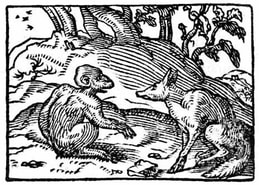 Artist: Thomas Bewick Artist: Thomas Bewick The Fox and The Monkey - Aesop's Fables A fox and a monkey were arguing about which of the two were "better born" and comparing their family trees. When they passed a cemetery, the monkey stopped and gave a great sigh. The fox was perplexed and asked the monkey to explain his sorrow. The monkey pointed to the tombstones and told the fox that all those monuments were placed in honour of his forefathers; who in their day were very eminent men indeed. At first the fox was speechless at this revelation about his companion. However, he quickly recovered when he realized, and reminded the monkey, that it was very unlikely any of his illustrious ancestors would rise up out of their graves and dispute the matter. Moral: Boasters brag most when no one is around to expose them There is so much to be learned from our ancestors. The monkey was devious and bragged when no one was around to expose his lies. The fox was clever because he saw through it. It still holds true today, although with the propensity for past posts on today's social media to rise up in the future and "dispute the matter" .... we'd all better be careful! Meadow Sweet Grove © V. Buchanan 2019
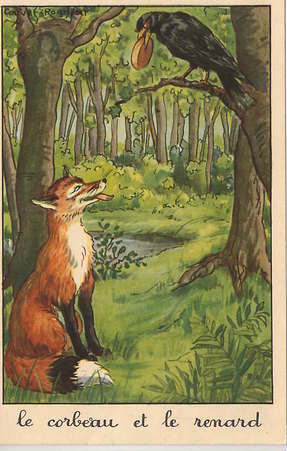 Illustration by Jean de la Fontaine Illustration by Jean de la Fontaine I think most people are familiar with Aesop's Fable about The Fox and the Crow. In this story, the Crow has found a wonderful round of cheese and is sitting in a tree, when along comes a sweet-talking fox. He wants the cheese for himself, but how to get it? He convinces the Crow that she has a beautiful voice and would love to hear her sing. She is flattered, opens her mouth to sing and, sadly for her, the cheese drops to the ground. Now, when you think about this fable, it becomes apparent that casting is important. Crows are really, really intelligent. Only a sly fox would have been right for this role ... for who else, in the entire animal kingdom would have the ability to out-smart a crow? Meadow Sweet Grove © V. Buchanan 2017 (gif courtesy of AnimatedImages.org) 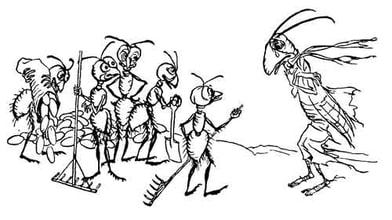 Illustration by Arthur Rackham Illustration by Arthur Rackham Anyone familiar with Aesop's Fables will remember how the carefree grasshopper sang her summer away (summertime and the living is easy right?) while meantime, the clever ants were preparing for their needs in the winter to come. A summary of the fable goes as follows: The ants were employing a fine winter's day in busily drying some grain which had got rather damp in storage. A grasshopper approached them, and earnestly begged for a few grains, as she said 'I'm simply starving.' The ants asked of her, 'Why did you not store up some food for the winter?' The grasshopper replied, 'Fact is; I was so busy singing that I simply didn't have the time.' The ants chuckled and replied, 'Well, then, if you were foolish enough to sing all summer; you might just as well dance all winter.' Moral: Work comes before play, Plan ahead, Put something away for hard times There are some harsh but easy-to-understand, simple truths in Aesop's Fables; and many I believe are worth revisiting and reincorporating into today's world; where common sense is sometimes shown lacking. What was true and authentic and "penned" more than 2,000 years ago is still true today, because the human condition is constant. The ants teach us to treasure self-reliance, while the grasshopper shows us the danger of prioritizing play to the exclusion of all else. We can learn from the ants in many ways: plant a small garden, preserve our harvest, reuse and re-purpose items, learn a new skill that helps save money around the home, think ahead and plan for future needs, and put aside a little money if at all possible ... all these will serve us well when winter comes. Bibliography: Aesop's Fables, Arthur Rackham, Pan Books, 1975 Meadow Sweet Grove © V. Buchanan 2017 / edited 2019 & 2020
|

~ SHOP ~
FREE SHIPPING WHEN YOUR ORDER TOTALS $99 CDN! Enter Coupon Code: FREESHIPPING at checkout and hit "Apply". (Offer available within Canada & USA only) Meadow Sweet GroveFolklore & Magic Archives Categories
All
|
|

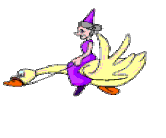



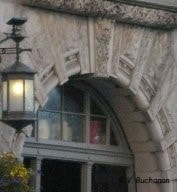
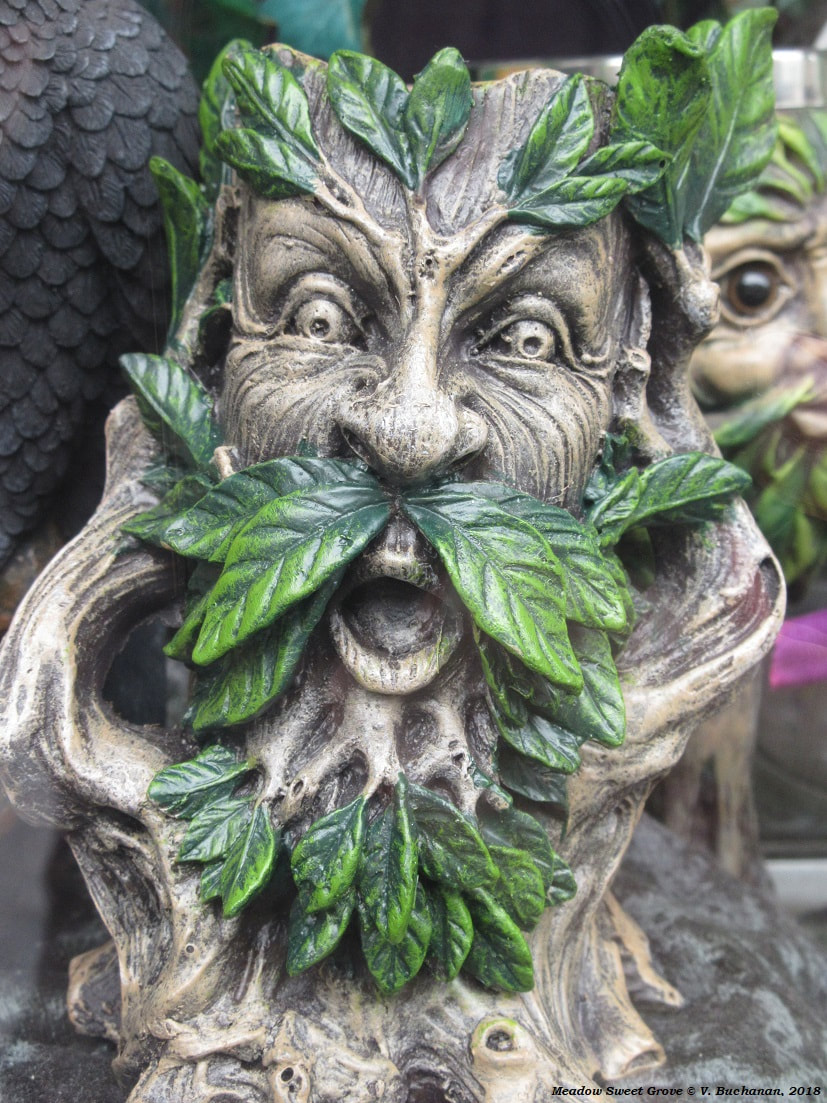
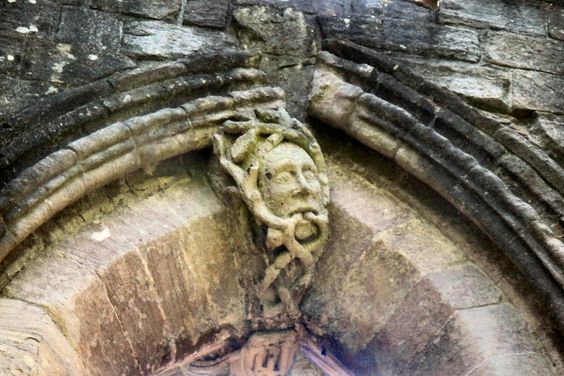
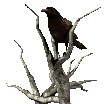
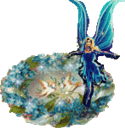

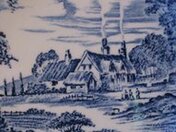
 RSS Feed
RSS Feed

